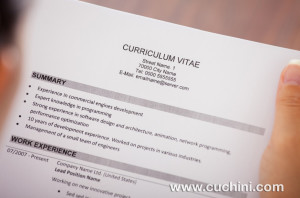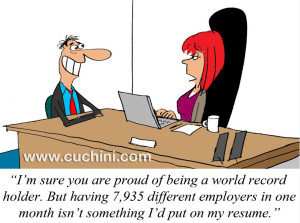 Your resume is the first impression a prospective employer will have about you. It has to showcase your skills and work experience suited to the industry. Research shows that it takes recruiters an average of six seconds before they make the preliminary decision of whether a candidate is fit for the job or not. Here’s how you can create a perfect resume to land you your dream job.
Your resume is the first impression a prospective employer will have about you. It has to showcase your skills and work experience suited to the industry. Research shows that it takes recruiters an average of six seconds before they make the preliminary decision of whether a candidate is fit for the job or not. Here’s how you can create a perfect resume to land you your dream job.
Tailor Your Resume to the Company and Position
Your resume should be able to communicate that you’re the ideal candidate for the job based on what the company is looking for. A tip is for you to check the company website and look for repeated words, taglines, and phrases. Mold your resume to reflect some of their language and work principles.
Use White Space, Bullets & Proper Formatting
 Your resume should be pleasing to the eye, so make use of white space. Try not to include so much information so that your paper has a healthy balance of text and white space. Make use of bullets, italics and bold fonts to highlight key points.
Your resume should be pleasing to the eye, so make use of white space. Try not to include so much information so that your paper has a healthy balance of text and white space. Make use of bullets, italics and bold fonts to highlight key points.
Use Chronological Format
Recruiters prefer knowing about your work history, so do your resume in a reverse-chronological format, with your most recent experience at the beginning. A functional resume, where you focus on skills rather than chronological job history, gives recruiters the impression that you’re hiding something such as job hopping, employment gap or outdated skills.
Include Relevant Experience Only
 As much as you want to include all your experience, only include those relevant to the job you’re applying for. If you are transferring industries and have minimal work experience, you may highlight transferable skills, those that you can use from one job to the next regardless of the industry or position.
As much as you want to include all your experience, only include those relevant to the job you’re applying for. If you are transferring industries and have minimal work experience, you may highlight transferable skills, those that you can use from one job to the next regardless of the industry or position.
A one-page resume should be enough for your experience. Only add an extra sheet if you have over 10 years worth of experience.
Quantify Your Accomplishments
Putting a number on your accomplishments carry greater impact than general ones. For example, “Managed a department of 10 sales account executives” is a lot stronger than plain “managed a sales department.” Do this with the rest of your achievements – increased revenue by X percent, from X to Y in Z number of years, increased membership from X to Y, or spearheaded a $1.5 M budget project.
The Extras
An objective serves as your 30 second elevator pitch – so try to keep it as tailored and less generic as possible. Education background should be placed at the end of the resume, and should be kept short. Don’t include high school education and activities unless you have no training beyond high school.
 Hobbies and interests have no place in a resume. Employers want to know what you can do for the company, not so much with who you are as a person. Also, unless actually asked to provide references, don’t list it down. And if you do, make sure you inform your references ahead of time that a prospect employer could be calling.
Hobbies and interests have no place in a resume. Employers want to know what you can do for the company, not so much with who you are as a person. Also, unless actually asked to provide references, don’t list it down. And if you do, make sure you inform your references ahead of time that a prospect employer could be calling.
Now that you’ve created the perfect resume to secure a dream job, make sure you prepare for the interview. Good luck on the hiring process!
 Did you enjoy this article?
Did you enjoy this article?






